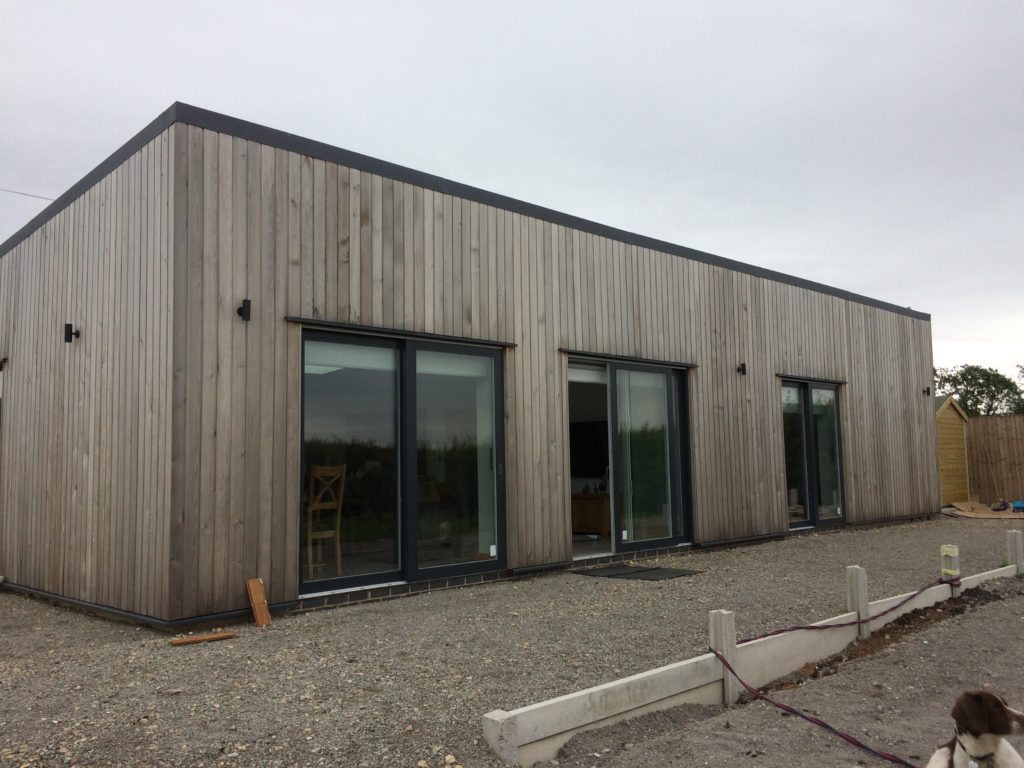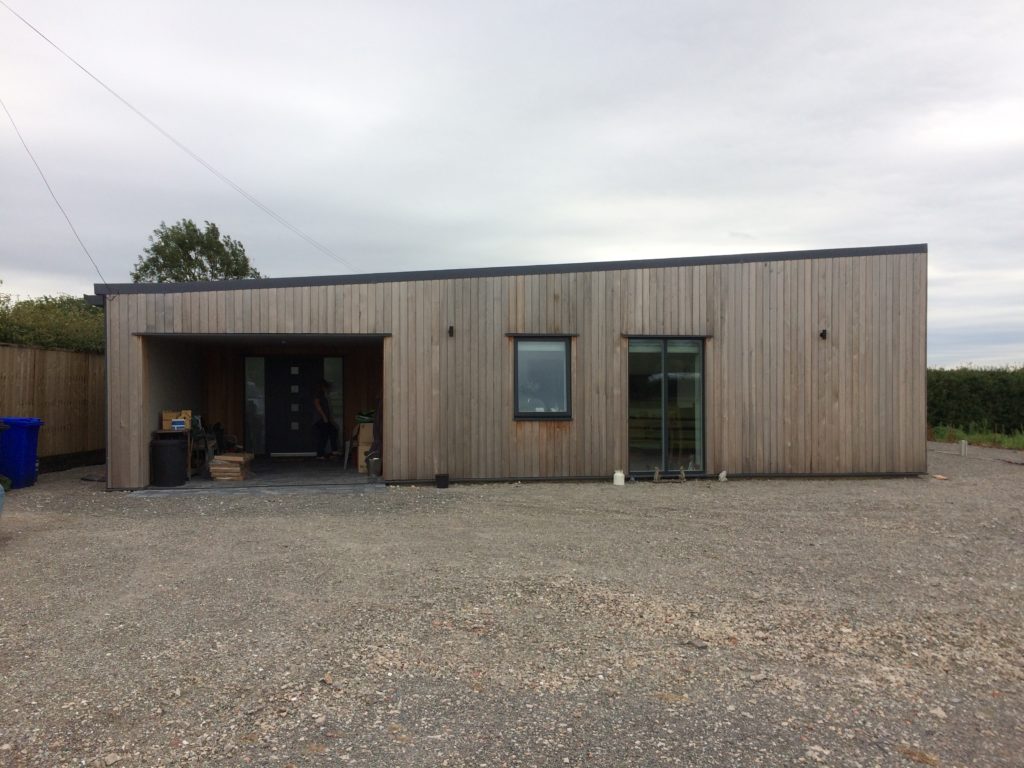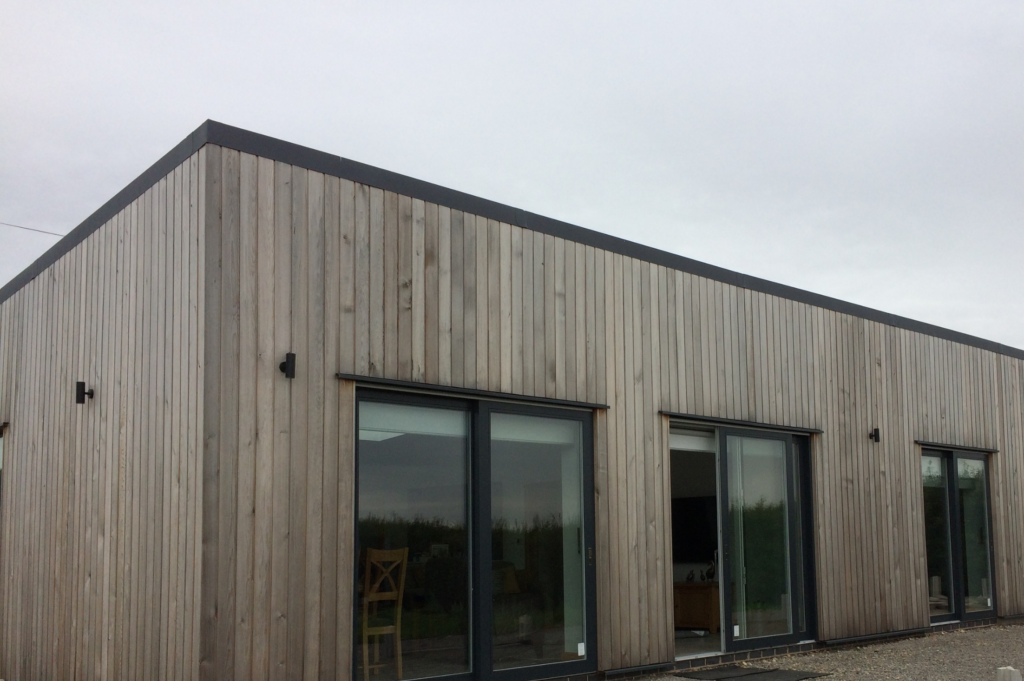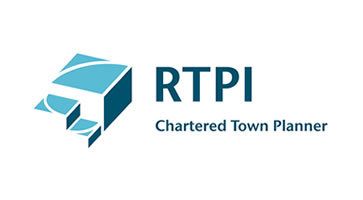Planning & Design Practice Ltd has successfully overturned an enforcement notice that sought to evict a Derbyshire couple from their dream home, writes Director Richard Pigott. The converted barn, completed in late 2019 using Class Q permitted development rights, was subject to enforcement action by Erewash Borough Council who considered that the dwelling was a new building rather than a conversion, and therefore contrary to Green Belt policies. The appellants had secured prior approval under class Q of the GPDO to convert a farm building on a smallholding to a dwelling. The council took enforcement action when they discovered, soon after building work had commenced, that the original timber roof support frame had been replaced with a steel frame. At this point PDP were engaged to advise the appellants. A retrospective application to regularise the work was refused and the council subsequently issued an enforcement notice directing that the building be demolished.
However, following an appeal hearing held in December Planning Inspector Melissa Madge concluded that very special circumstances justify retrospective approval of the barn conversion. The inspector agreed that the building operations undertaken exceeded what had been reasonably necessary to facilitate change of use from an agricultural building to a dwelling and had resulted in the erection of a new dwelling. Turning to the deemed application, whilst determining that the dwelling was an inappropriate form of development in the Green Belt, she noted that during the course of the works, the appellants had been advised that the timber frame would not support insulated roof panels and had failed to appreciate that replacing it went outside the scope of class Q. The inspector was satisfied that the appellants had intended to implement the approved scheme and worked with the existing building as much as they felt was necessary. Since the resultant dwelling was not dissimilar in appearance to what it would have been had the timber framework been retained and strengthened, she concluded that it did not harm the area’s character. She also gave weight to the appellant’s health and financial circumstances in deciding that the very special circumstances needed to justify inappropriate development in the Green Belt had been shown.
Commenting on the decision, Richard Pigott said “we are delighted to have won this appeal for our clients who have faced over 2 years of stress and uncertainty. The threat of eviction has now gone and they can finally settle in properly without the enforcement proceedings hanging over them.” Richard said that the case highlighted two important lessons. Firstly, Class Q is a complex piece of legislation with many ‘grey areas’ and, with this in mind, it is important to have in place a set of parameters in a construction method statement that has been agreed with the council as this will clearly identify what can and cannot be done to a building with class Q consent. Secondly, the particular circumstances of this case were pivotal – the fact that this was a self-build project by ‘lay people’ who clearly attempted to convert the building afforded them a degree of leniency which could not always be relied upon. A link to the Inspector’s decision letter can be found here:
Richard has produced a webinar on Class Q permitted development rights which can be found here:
If you would like to discuss whether your barn qualifies for Class Q permitted development rights please get in touch.





